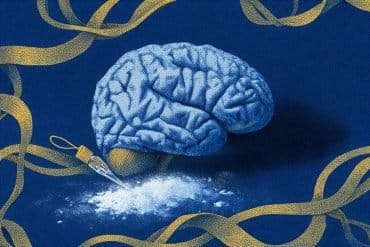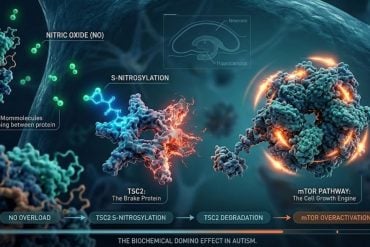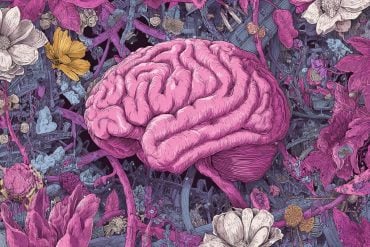Summary: A new study shows that out-of-body experiences (OBEs), including near-death experiences, can dramatically increase empathy and transform how individuals connect with others. Researchers suggest this may result from “ego dissolution,” where individuals lose their sense of self and feel deeply connected to the universe.
The study highlights how these experiences foster prosocial behaviors like compassion, patience, and understanding. These findings open possibilities for developing methods to enhance empathy, a crucial trait in today’s fractured world.
Key Facts:
- Out-of-body experiences lead to a sense of interconnectedness and greater empathy.
- “Ego dissolution” during OBEs fosters lasting emotional and prosocial changes.
- Understanding OBEs could help researchers develop ways to increase empathy globally.
Source: University of Virginia
Out-of-body experiences, such as near-death experiences, can have a “transformative” effect on people’s ability to experience empathy and connect with others, a scientific paper from University of Virginia School of Medicine researchers explains.
The fascinating work from UVA’s Marina Weiler, PhD, and colleagues not only explores the complex relationship between altered states of consciousness and empathy but could lead to new ways to foster empathy during a particularly fractured time for American society – and the world.

“Empathy is a fundamental aspect of human interaction that allows individuals to connect deeply with others, fostering trust and understanding,” said Weiler, a neuroscientist with UVA’s Division of Perceptual Studies.
“The exploration, refinement and application of methods to enhance empathy in individuals – whether through OBE [out-of-body experience]-related ego dissolution or other approaches – is an exciting avenue with potentially profound implications for individuals and society at large.”
How Out-of-Body Experiences Affect Empathy
Weiler’s paper examines the possibility that the dramatic increases in empathy seen in people who undergo out-of-body experiences may result from what is known as “ego dissolution” – the loss of the sense of self. In these instances, people feel they have been severed from their physical form and have connected with the universe at a deeper level.
Sometimes known as “ego death” or “ego loss,” this state can be brought on by near-death experiences, hallucinogenic drugs and other causes. But people who undergo it often report that their viewpoint on the world, and their place in it, is radically changed.
“The detachment from the physical body often leads to a sense of interconnectedness with all life and a deepened emotional connection with others,” the researchers write.
“These sensations of interconnectedness can persist beyond the experience itself, reshaping the individual’s perception and fostering increased empathy, thereby influencing personal relationships and societal harmony.”
Out-of-body experiences can seem more real than reality itself, the researchers note, and this sense of transcendental connectedness can translate into “prosocial” behaviors afterward. Experiencers often become more compassionate, more patient, more understanding.
More than half in one study described their relationships with others as more peaceful and harmonious. Many become more spiritual and more convinced of the possibility of life after death.
In their paper, Weiler and her co-authors explore potential explanations for what is happening within the brain to cause these changes. But while that remains unclear, the lasting effects of OBEs are not.
And by understanding how these life-changing experiences can enhance empathy, researchers may be able to develop ways to help foster it for society’s benefit during a conflicted age.
“Interest in cultivating empathy and other prosocial emotions and behaviors is widespread worldwide,” the researchers conclude.
“Understanding how virtues related to consideration for others can be nurtured is a goal with personal, societal and potentially global implications.”
About this neuroscience and psychology research news
Author: Josh Barney
Source: University of Virginia
Contact: Josh Barney – University of Virginia
Image: The image is credited to Neuroscience News
Original Research: Open access.
“Exploring the transformative potential of out-of-body experiences: A pathway to enhanced empathy” by Marina Weiler et al. Neuroscience & Biobehavioral Reviews
Abstract
Exploring the transformative potential of out-of-body experiences: A pathway to enhanced empathy
Out-of-body experiences (OBEs) are subjective phenomena during which individuals feel disembodied or perceive themselves as outside of their physical bodies, often resulting in profound and transformative effects. In particular, experiencers report greater heightened pro-social behavior, including more peaceful relationships, tolerance, and empathy.
Drawing parallels with the phenomenon of ego dissolution induced by certain psychedelic substances, we explore the notion that OBEs may engender these changes through ego dissolution, which fosters a deep-seated sense of unity and interconnectedness with others.
We then assess potential brain mechanisms underlying the link between OBEs and empathy, considering the involvement of the temporoparietal junction and the Default Mode Network.
This manuscript offers an examination of the potential pathways through which OBEs catalyze empathic enhancement, shedding light on the intricate interplay between altered states of consciousness and human empathy.






